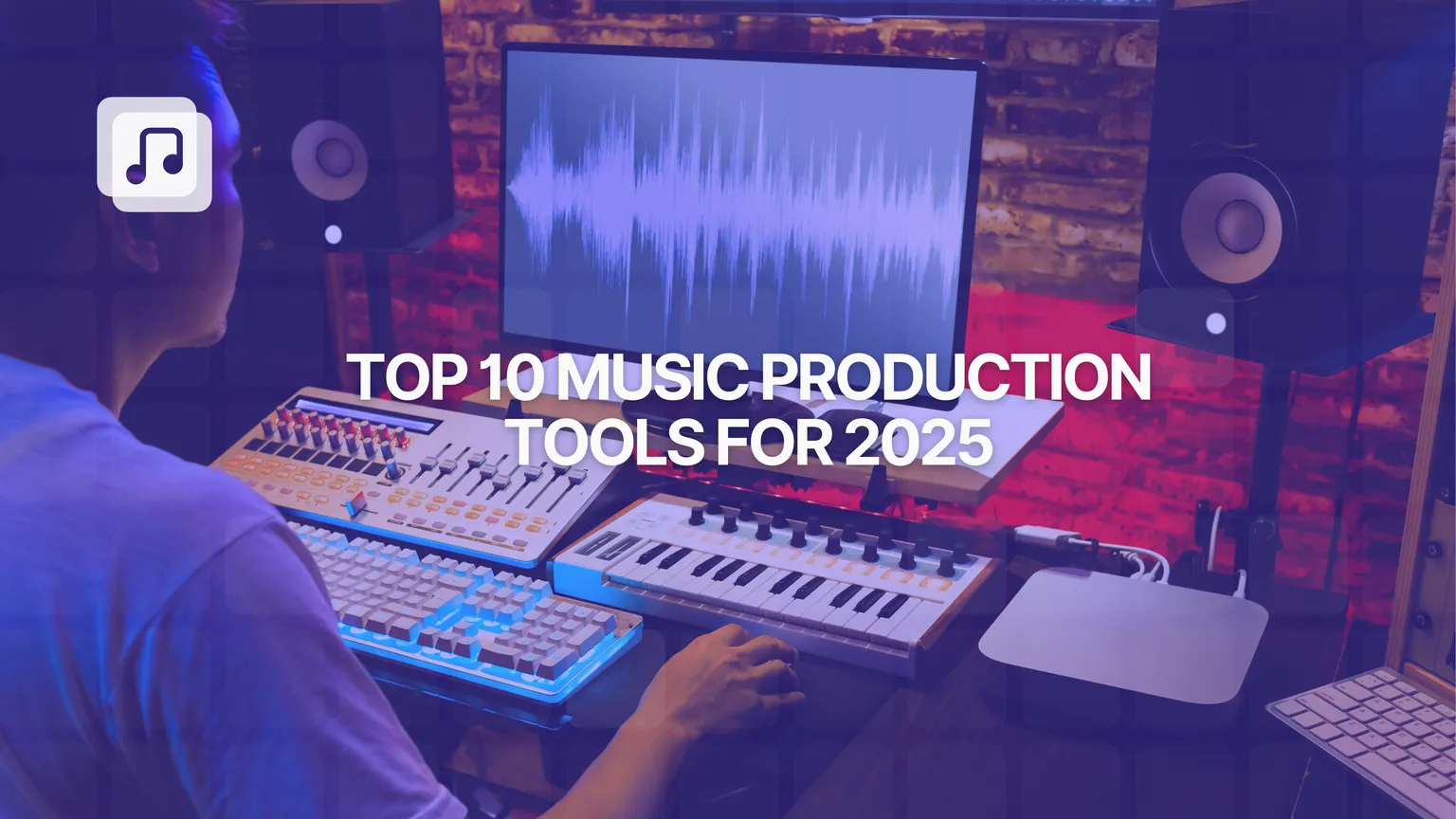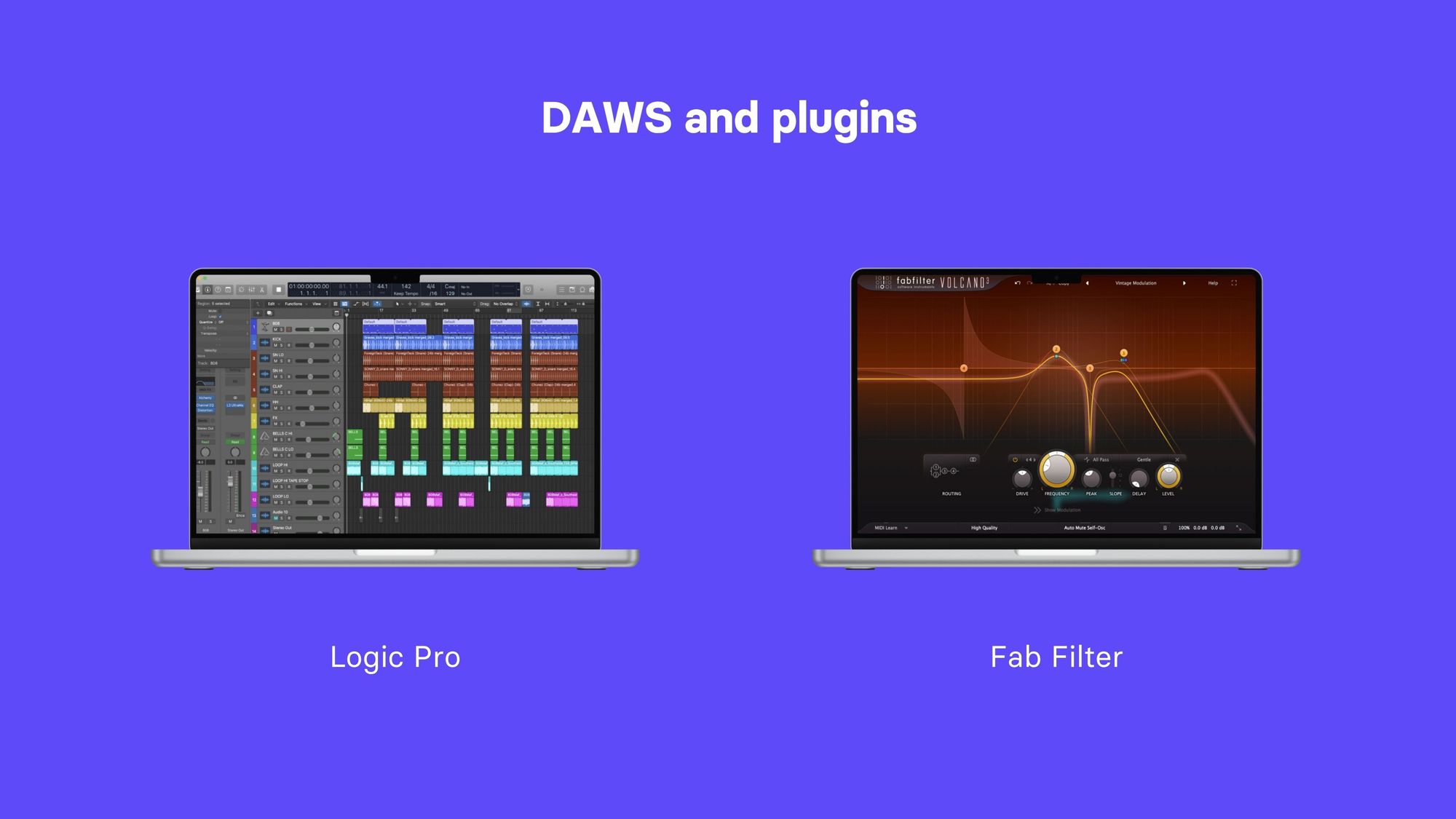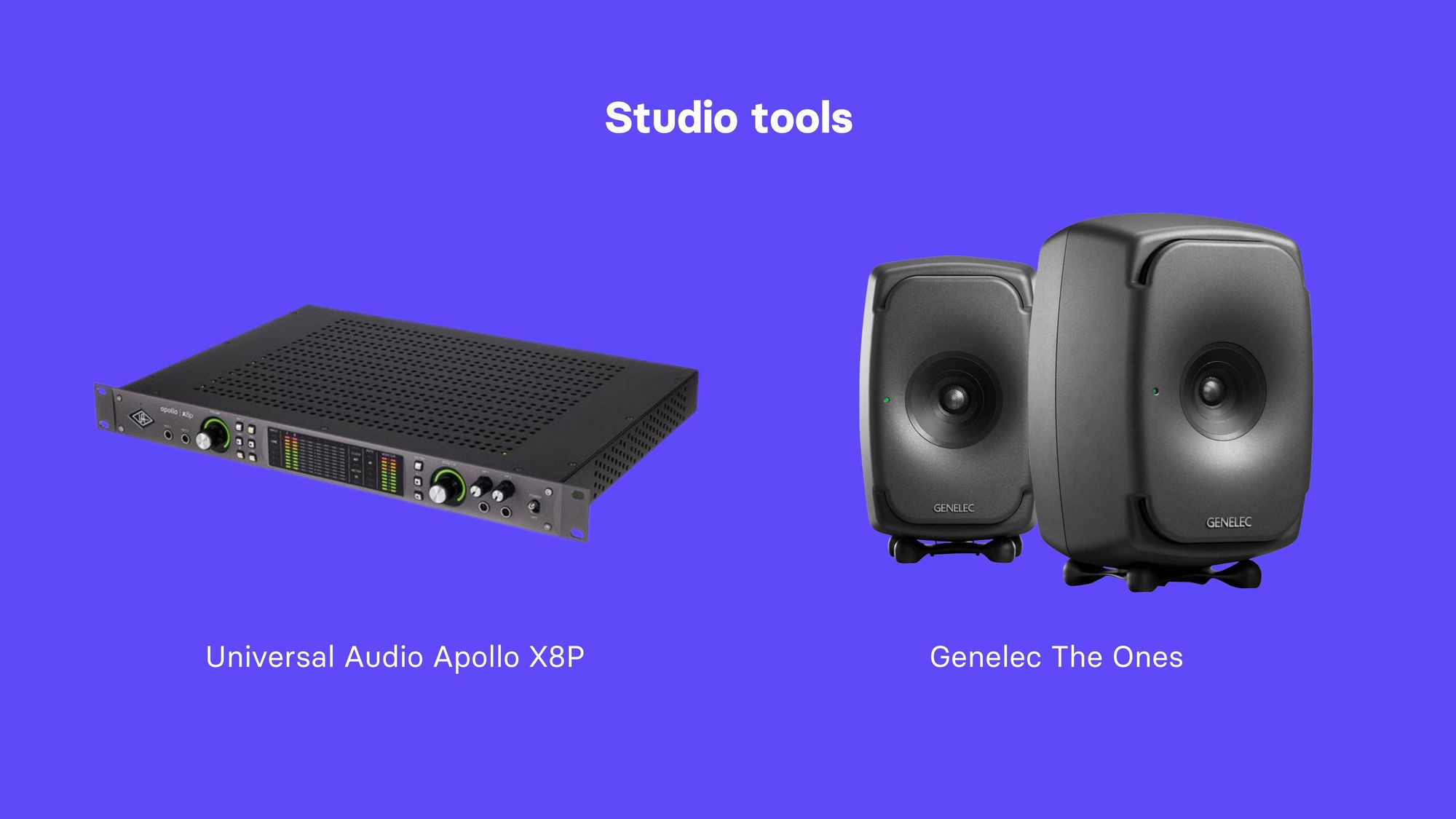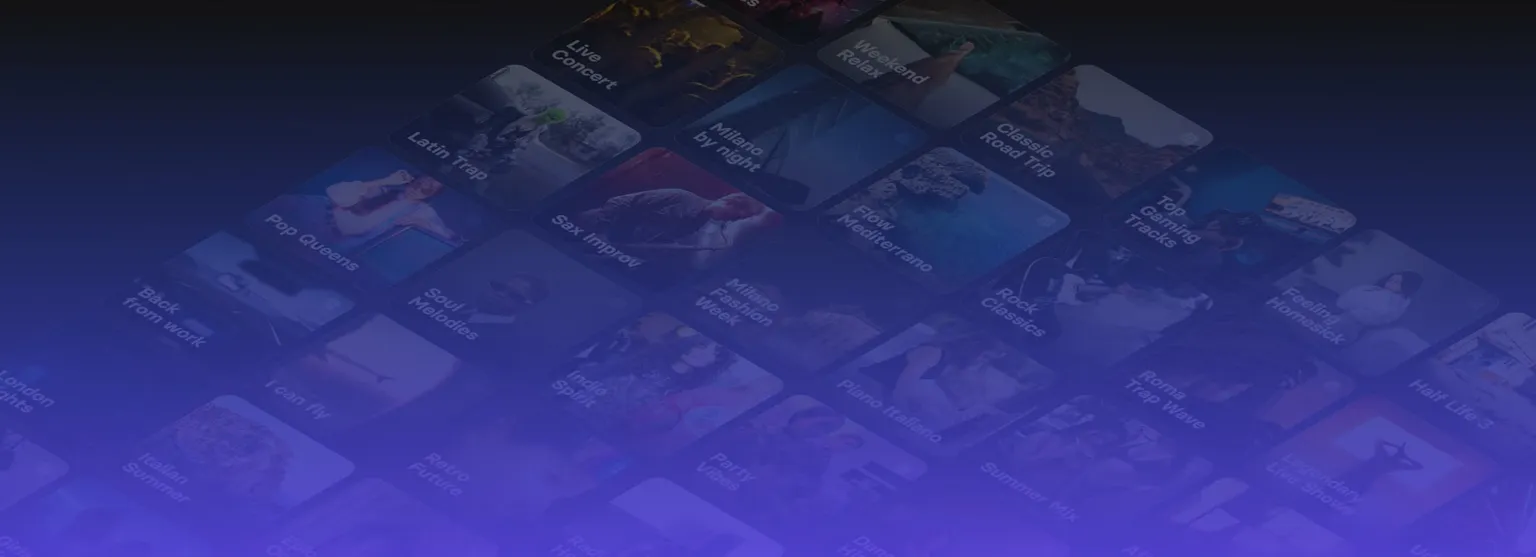
The world of music production is moving faster than ever, shaped by constant technological evolution and the increasing demand for high-quality sound across platforms. As we move into 2025, producers must stay ahead of the curve by embracing the latest innovations that redefine how we compose, record, mix, and master audio. Whether you're a beginner exploring your creative potential or a seasoned professional seeking to upgrade your toolkit, here are the ten most important music production tools that will dominate studios in 2025.
1. Advanced digital audio workstations (DAWs)
No music producer can operate without a powerful DAW, the software environment where music comes to life. In 2025, DAWs have become more refined, user-friendly, and powered by artificial intelligence. These programs are now intelligent enough to streamline your workflow, suggest mixing settings, and even generate melodic ideas.
Leading the pack are:
- Ableton Live 12 – Ideal for electronic music and live performances, offering unmatched flexibility.
- Logic Pro X 11 – A top-tier DAW for Mac users with seamless Apple ecosystem integration.
- Pro Tools Ultimate – The industry standard in professional studios worldwide.
- FL Studio 25 – Favored by beatmakers for its intuitive interface and fast workflow.
Choosing the right DAW depends on your music style and preferred workflow, so it’s worth experimenting to find the best fit.

2. Cutting-edge production technologies
Technology continues to redefine music production. In 2025, innovations like artificial intelligence, machine learning, and extended reality are pushing the boundaries of what creators can do. AI-driven tools now help suggest chord progressions, generate rhythm patterns, or even create entire demo tracks based on your input.
Meanwhile, virtual and augmented reality have entered the studio, allowing producers to sculpt sounds in immersive 3D environments moving and placing virtual instruments as if they were physical objects. Imagine conducting your mix with hand gestures or building soundscapes by literally shaping audio waves.
Other groundbreaking technologies include:
- Neural interfaces for mind-controlled parameter changes.
- Physically modeled synthesizers with hyper-realistic acoustic behavior.
- AI-powered collaboration platforms in virtual reality.
These tools are democratizing music production, allowing artists from all backgrounds to achieve professional results with fewer technical barriers.
3. Mixing and mastering tools
Mixing and mastering are critical phases where raw recordings transform into polished tracks.
Modern plugins now analyze your tracks and suggest EQ and compression settings, adapting automatically as the song evolves. Spatial audio tools have become standard, letting engineers place sounds precisely in a 3D mix, ideal for Dolby Atmos, 360 Reality Audio, and other immersive formats.
Some standout tools include:
- iZotope Ozone 12 – All-in-one mastering suite with AI-powered enhancements.
- FabFilter Pro-Q 5 – Precision EQ with real-time spectrum analysis.
- Waves Abbey Road TG Mastering Chain – Vintage analog emulation with modern flexibility.
- Eventide Physion Mk II – Innovative processing based on tonal/transient separation.

4. Sound design software
Sound design is no longer just for movie studios, musicians increasingly rely on it to shape their unique sonic identity.
Virtual modular synthesizers now offer nearly infinite routing and modulation options, while drag-and-drop interfaces make even the most complex patches accessible. Granular synthesis and spectral editing tools allow you to deconstruct sounds at the atomic level and rebuild them into something entirely new.
Top tools for sound design include:
- Native Instruments Reaktor 7 – Modular playground for custom synths and effects.
- Arturia Pigments 4 – Hybrid synth with multiple sound engines and deep modulation.
- Krotos Concept – AI-assisted sound design platform for cinematic effects.
- Output Portal – Granular effects processor for evolving textures and atmospheres.
5. Expansive sound libraries
AI helps tag and sort samples based on emotional tone, instrument type, and genre, making it easier to find the perfect sound in seconds. Dynamic sample packs now include morphing controls to create infinite variations from a single sound source.
Top picks for sound libraries:
- Spitfire Audio BBC Symphony Orchestra Pro – Orchestral sounds recorded in exquisite detail.
- Output Arcade 2.0 – Loop-based platform with daily content updates.
- Native Instruments Komplete 15 Ultimate – A comprehensive suite of instruments and effects.
- Heavyocity Damage 3 – Cinematic percussion with customizable playback engines.
These libraries let you spend less time searching and more time creating.

6. Advanced MIDI controllers
New-generation MIDI devices use motion sensors, haptic feedback, and high-resolution displays to give musicians unprecedented control over their virtual instruments.
Trending MIDI controllers:
- Roli Seaboard RISE 2 – Pressure-sensitive keyboard for expressive playing.
- Ableton Push 4 – Seamless integration with Ableton Live and performance tools.
- Native Instruments Komplete Kontrol S-Series MK3 – Smart keyboard with plugin control.
- Artiphon Orba 2 – Palm-sized controller for intuitive musical sketching.
These devices bring a human touch back into digital music-making.
7. Professional audio interfaces
Cutting-edge interfaces include high-end DACs and ADCs, network-ready audio protocols like Dante, and onboard DSP for real-time processing without burdening your CPU.
Top audio interfaces:
- Universal Audio Apollo X8P – Studio-grade preamps and DSP-powered plugins.
- Antelope Audio Zen Q Synergy Core – Compact yet powerful with FPGA processing.
- RME Fireface UFX III – Flexible I/O and top-tier drivers for stability.
- Apogee Symphony I/O MkII – Modular system with outstanding conversion quality.
8. Studio monitors of the future
These monitors adapt to your room's acoustics, providing a flat frequency response and ensuring you hear an accurate representation of your mix.
Best-in-class studio monitors:
- Genelec The Ones – Coaxial monitors with smart room calibration.
- Neumann KH 420 G – High-end reference monitors with controlled dispersion.
- IK Multimedia iLoud MTM – Compact monitors with built-in room correction.
- Amphion Two18 + BaseOne25 – Full-range system with exceptional clarity.

9. Audio performance optimization
Dedicated operating systems like AudioLinux eliminate unnecessary background tasks, while networked audio systems distribute processing loads across multiple machines. AI-powered performance managers dynamically adjust buffer sizes and plugin allocations.
Key performance tools:
- AudioLinux – A real-time OS built for audio stability.
- Vienna Ensemble Pro 7 – Distributes instrument load across networked systems.
- Waves SoundGrid – Real-time audio networking and processing platform.
- Digital Performer 12 – Optimized DAW with robust performance tools.
10. Artificial intelligence in music
Some AI tools can analyze your musical input and offer creative suggestions or generate full compositions in various styles. Others separate audio sources with uncanny precision or automatically balance a mix.
Essential AI-driven tools:
- AIVA – AI composer capable of producing music in multiple genres.
- iZotope Neutron 4 – Mix assistant that intelligently balances tracks.
- Audionamix XTRAX STEMS 3 – Advanced source separation for remixing.
- Accusonus ERA 6 – Audio repair suite powered by AI.
Conclusion
As we've seen, 2025 offers an extraordinary toolkit for music producers. From AI-assisted mixing to immersive sound design and next-gen MIDI controllers, the creative possibilities have never been greater. But producing a great track is only half the journey. The other half? Making sure people hear it.
That’s where Matchfy becomes a crucial part of your post-production toolkit.
Matchfy is a platform designed to help artists promote and distribute their music organically and intelligently. Unlike pay-for-play scams or empty stream farms, Matchfy connects your music to real user-curated playlists that match your genre and style, helping you reach listeners who are genuinely interested in your sound.

